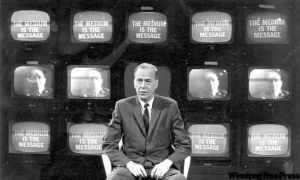
Those looking for villains in the 2016 Election are looking in the wrong places.
Politicians did not fail, they did what they do. The “mainstream media” did not fail. It does not exist.
What failed was the Internet medium.
As I indicated last week, the men who control the new medium of the Internet refused to take political responsibility for it. They said they were not running media companies, even as the Internet media soaked up all the media dollars. The result was that the Internet industry, and its political interests, could be hijacked by movements and industries opposed to those interests. Nature abhors a vacuum, and Trump simply filled it.
The political interests of the Internet are easy to list, and were endorsed by the Obama Administration as a matter of course. The primary interest is in human capital, trained minds essential to driving the industry forward, in making it independent of older power centers, and nurturing the biological industries that need to grow and follow it into power.
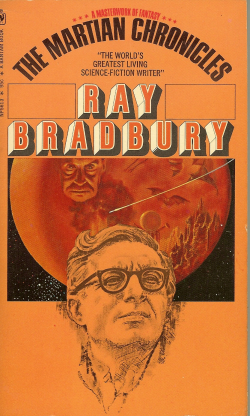 Ray Bradbury’s The Martian Chronicles stories were about terraforming a planet, and the promise of Elon Musk is to colonize Mars. But none of that will mean anything unless this planet is terraformed first, and made habitable for future generations. That will require re-engineering both the environment and life itself. It’s an enormous job that will require all the human capital we can bring to it, as well as a political consensus that does not exist now. That is the job of this century.
Ray Bradbury’s The Martian Chronicles stories were about terraforming a planet, and the promise of Elon Musk is to colonize Mars. But none of that will mean anything unless this planet is terraformed first, and made habitable for future generations. That will require re-engineering both the environment and life itself. It’s an enormous job that will require all the human capital we can bring to it, as well as a political consensus that does not exist now. That is the job of this century.
Donald Trump and the resource economy behind him don’t give a shit about human capital. They believe in power over resources, a system that has worked since the 1960s. They’re happy to throw political enemies on the fire to maintain power. They think armies can control people by controlling land. They’re mainly interested in what lies beneath.
All this threatens both the short and long term interests of people like Mark Zuckerberg, Larry Page, Marc Benioff, Jeff Bezos, and the others who built and nurture this medium you’re now using. The Internet is unique in human history, because the same technology industry from which money is made is also the medium which delivers that industry’s political message to those whose support is necessary for it to prosper.
This wasn’t true in my time. TV and oil are different. It wasn’t true in my father’s time. Radio, movies, and magazines are different from manufacturing. In my grandfather’s time the newspapers and magazines were run by different people than the utilities and banks whose interests they supported.
Zuckerberg, Page and their contemporaries see themselves as leaders of an industry. They do not see themselves as creators of a medium, and responsible for what it does. They think users should do this for themselves. This ignorance allowed their political enemies to hack their media and take control of the political agenda.
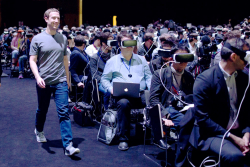
Between them, the leaders of the Internet have a net worth of well over $1 trillion, and the cost of meeting their responsibility would be a rounding error, even if we’re talking $10 billion toward the next Presidential election. Any losses from investments in politics or the Internet media will be more than made up by increased market cap for companies like Alphabet, Facebook, and Amazon.com.
There are many things which must be done over the next few years, but the first task must be to drive lies out of the medium, and to create a business model for fact and rational thought. What hacked the Internet was people like Steve Bannan and Rupert Murdoch, and backers of their political models like the Kochs and Robert Mercer, who handed over enough cash to create an alternative political reality, to get people to believe it, and insulate those people from any other information, like facts.
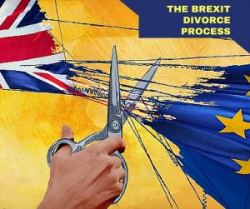
What this means is we need big investments in reporters, in editors, and in marketing of new media that beholden to technology’s interests. If that sounds to you like propaganda, you’re catching on. This is a propaganda war, fought in cyberspace, and it’s a war that must be fought or it will be lost to those whose propaganda is controlled by others.
Beyond this there are a host of other political investments that must be made. I’m talking about think tanks, pressure groups, interest groups, reaching across the whole panoply of global political thought. This is what the resource industries did in the 1970s, accelerating after the election of Jimmy Carter (and his cardigan sweater). University chairs must also be funded, in both public and private schools as well, to give the new politics a theoretical base.
The good news is many of these institutions already exist. The oil industry had to create a lot of these things from scratch. All the Internet industry needs to do is hold some meetings, show the checkbook, and get the right people on some boards. In theory. Practice is another matter. Practice will be hard with the government putting all its resources into resistance.
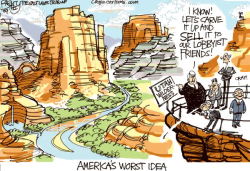
Remember the Sagebrush Rebellion? Remember the Moral Majority? These issues and groups had nothing to do with what Jimmy Carter was trying to do in 1977. They were created, by the political right, to take control of the agenda, to get people talking about what the oil industry wanted them to talk about. These issues and groups had little to do with what the industry itself was interested in at that time. They wanted control of the military to gain control of resources, to make those markets dollar-only, to make the global economy manipulatable by people allied with the oil industry. But they let the industry play offense. Offense is what’s needed now on behalf of the tech industry, before the tech agenda can be put in place.
I don’t know which issues will test best. But Facebook and Google have the resources to find this out with enormous precision. They have the capacity to build issue dossiers on every American, through front groups, that can tell them precisely what issues work best. Then it’s just a matter of using your new media to push those issues, and your new front groups to support those issues, to gain the industry’s righteous portion of political power.
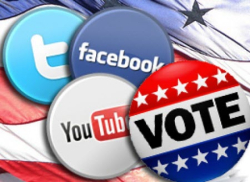
Losing teaches important lessons. But it’s also an opportunity to make things right. As the Internet industries learn who their friends are, learn who their enemies are, and learn to look out for their own interests in this medium they have created, they will create the next political culture.
That’s going to be the political story of 2017, watching to see if the Internet industry has gotten the message and, assuming they have, seeing what they do about it. It will take some digging to get it, because the oil industry’s machinations were well-hidden in 1977. But that will be the story to watch.









